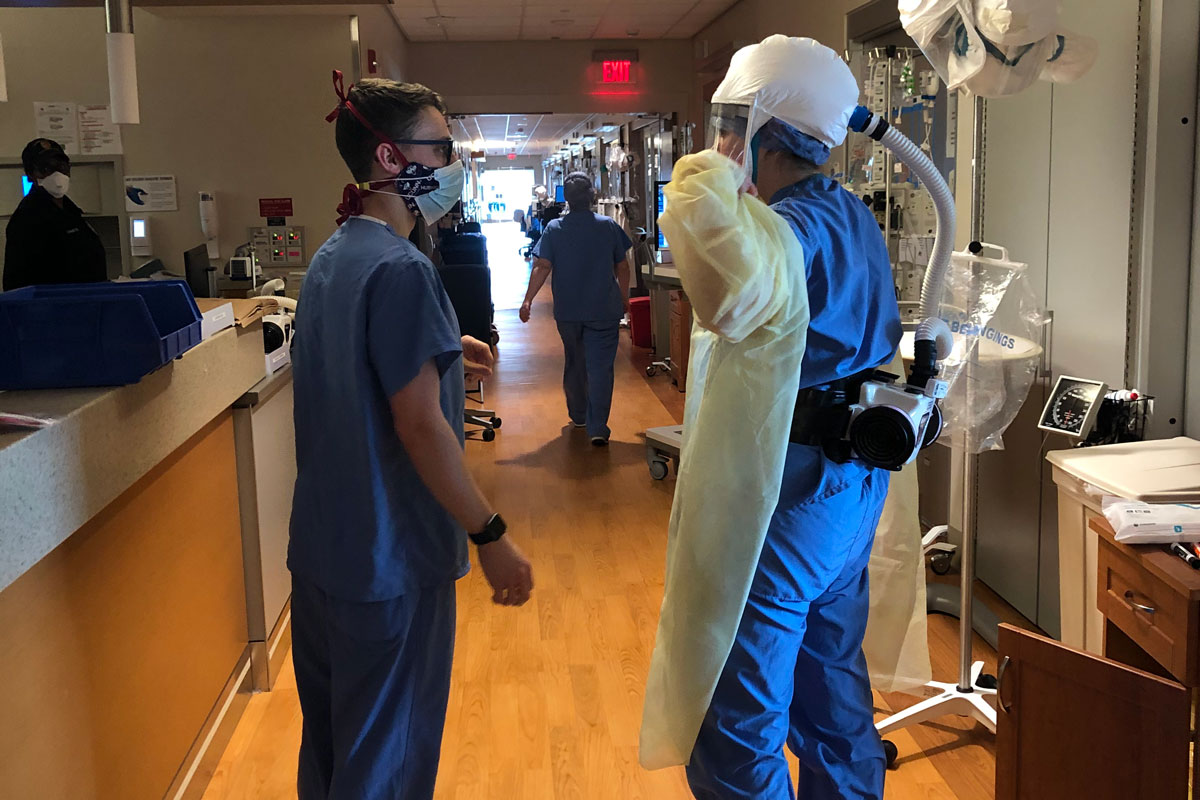Recognizing the need to provide avenues of support for employees under the pressure of the ongoing public health crisis, UConn Health leadership is offering a variety of emotional support resources.
They include a series of counseling opportunities from UConn Health psychiatry clinicians and the Employee Assistance Program, on-site, by phone or via video conference, for both private individual sessions and work team debriefings. Private counseling space with telehealth capability is now available in the Wellness Center (academic building, main floor, LM034) which has been repurposed as a “comfort room,” with 24/7 access enabling staff to decompress, shower, or just take a break. The Mood and Anxiety Disorders Clinic will soon offer telehealth sessions.
“Since the intensity of this health care crisis has risen in our country, there has been a great deal of learning that has had to take place, in an effort to care for our COVID-19 patients,” says Chief Nursing Officer Caryl Ryan. “I have been tremendously honored to work with an incredible number of health care professionals who have displayed courage, empathy and dedication each and every day on the front lines of our hospital caring for these patients. The physical and emotional demands that has impacted our providers and nursing staff has been of great concern to me. I am very appreciative of the support resources that have been made available for all staff to utilize. It is time to ensure that our emotional health become a priority to our well-being through this crisis.”
Among the other resources, to which Human Resources has aggregated links on its work-life page, is “Mindfulness Meditation,” a series of audio files to guide anyone through a session of relaxation and breathing techniques to ease anxiety and help manage stress, and “Midday Meditation,” a daily 15-minute conference call led by the Department of Psychiatry with similar goals.
HR will keep the work-life page current with additional resources as they become available. Acknowledging that many of the employees who would benefit from emotional support services are those who don’t spend much time at a desk, organizers are supplementing the digital information with printed materials for distribution in work areas.
“The COVID-19 outbreak has created a stressful time for all of our support staff,” says Tom Trutter, vice president for facilities development and operation, who oversees the custodians and trade workers. “Now more than ever, we are committed to providing the support and resources necessary to ensure that all of our employees are able to work safely and manage their emotional and mental well-being.”
Other support staff include dietary, transport, logistics, and ancillary services such as pharmacy, lab medicine, diagnostics and screening. Information technology employees also have been bearing a greater burden with the increase in telecommuters relying on technology to keep up with their workloads.
“I am very proud of the selflessness, competency, generosity and courage of our doctors, nurses, other providers, housekeepers, maintenance workers, technologists, residents and others who enable us to accomplish our patient care mission during these difficult times,” says Dr. Andrew Agwunobi, UConn Heath CEO and executive vice president for health affairs. “I take it as a personal responsibility to ensure that we are keeping these heroes healthy both mentally and physically as they conduct this amazing work, and I know every one of our senior leaders and managers feels the same.”



